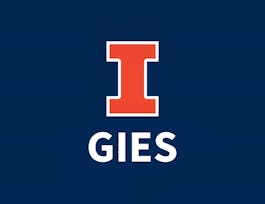This course will help us to evaluate and compare the models we have developed in previous courses. So far we have developed techniques for regression and classification, but how low should the error of a classifier be (for example) before we decide that the classifier is "good enough"? Or how do we decide which of two regression algorithms is better?


Meaningful Predictive Modeling
This course is part of Python Data Products for Predictive Analytics Specialization
Taught in English
Some content may not be translated


Instructors: Julian McAuley
6,086 already enrolled
Included with 
Course
(47 reviews)
What you'll learn
Understand the definitions of simple error measures (e.g. MSE, accuracy, precision/recall).
Evaluate the performance of regressors / classifiers using the above measures.
Understand the difference between training/testing performance, and generalizability.
Understand techniques to avoid overfitting and achieve good generalization performance.
Details to know

Add to your LinkedIn profile
10 quizzes
Course
(47 reviews)
See how employees at top companies are mastering in-demand skills

Build your subject-matter expertise
- Learn new concepts from industry experts
- Gain a foundational understanding of a subject or tool
- Develop job-relevant skills with hands-on projects
- Earn a shareable career certificate


Earn a career certificate
Add this credential to your LinkedIn profile, resume, or CV
Share it on social media and in your performance review

There are 4 modules in this course
For this first week, we will go over the syllabus, download all course materials, and get your system up and running for the course. We will also introduce the basics of diagnostics for the results of supervised learning.
What's included
6 videos4 readings3 quizzes2 discussion prompts
This week, we will learn how to create a simple bag of words for analysis. We will also cover regularization and why it matters when building a model. Lastly, we will evaluate a model with regularization, focusing on classifiers.
What's included
4 videos4 quizzes
This week, we will learn about validation and how to implement it in tandem with training and testing. We will also cover how to implement a regularization pipeline in Python and introduce a few guidelines for best practices.
What's included
4 videos3 quizzes
In the final week of this course, you will continue building on the project from the first and second courses of Python Data Products for Predictive Analytics with simple predictive machine learning algorithms. Find a dataset, clean it, and perform basic analyses on the data. Evaluate your model, validate your analyses, and make sure you aren't overfitting the data.
What's included
2 readings1 peer review1 discussion prompt
Instructors

Offered by
Recommended if you're interested in Data Analysis

University of California San Diego

University of Pennsylvania

University of Illinois at Urbana-Champaign

Utrecht University
Why people choose Coursera for their career




Learner reviews
Showing 3 of 47
47 reviews
- 5 stars
57.44%
- 4 stars
23.40%
- 3 stars
12.76%
- 2 stars
4.25%
- 1 star
2.12%
New to Data Analysis? Start here.

Open new doors with Coursera Plus
Unlimited access to 7,000+ world-class courses, hands-on projects, and job-ready certificate programs - all included in your subscription
Advance your career with an online degree
Earn a degree from world-class universities - 100% online
Join over 3,400 global companies that choose Coursera for Business
Upskill your employees to excel in the digital economy
Frequently asked questions
Access to lectures and assignments depends on your type of enrollment. If you take a course in audit mode, you will be able to see most course materials for free. To access graded assignments and to earn a Certificate, you will need to purchase the Certificate experience, during or after your audit. If you don't see the audit option:
The course may not offer an audit option. You can try a Free Trial instead, or apply for Financial Aid.
The course may offer 'Full Course, No Certificate' instead. This option lets you see all course materials, submit required assessments, and get a final grade. This also means that you will not be able to purchase a Certificate experience.
When you enroll in the course, you get access to all of the courses in the Specialization, and you earn a certificate when you complete the work. Your electronic Certificate will be added to your Accomplishments page - from there, you can print your Certificate or add it to your LinkedIn profile. If you only want to read and view the course content, you can audit the course for free.
If you subscribed, you get a 7-day free trial during which you can cancel at no penalty. After that, we don’t give refunds, but you can cancel your subscription at any time. See our full refund policy.

